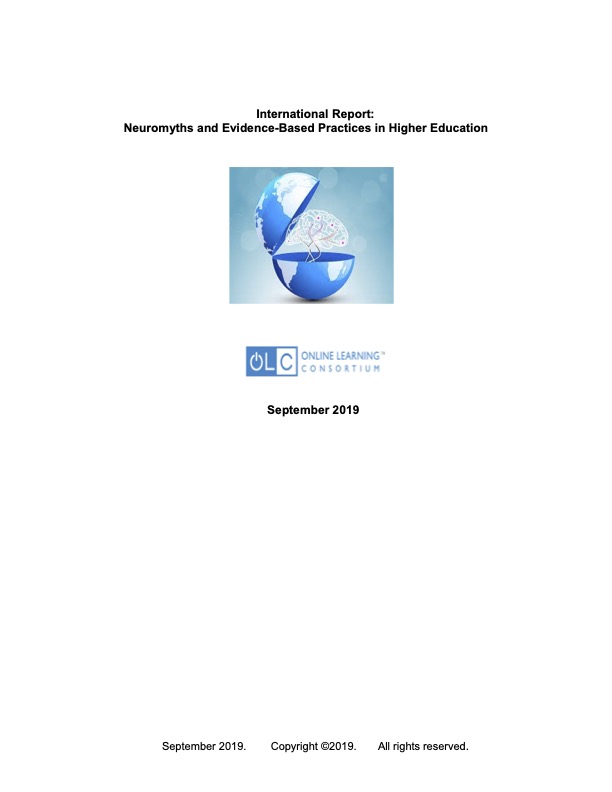About the Report
The purpose of this international, non-experimental study was threefold. First, this study examined the awareness of neuromyths and general knowledge about the brain in higher education among instructors, instructional designers, and administrators who work with professional development (referred to as administrators) in two- and four- year institutions of higher education (IHE) across on-campus, blended/hybrid, and online programs. Second, this study examined the awareness of evidence-based practices from the learning sciences and Mind (psychology), Brain (neuroscience) and Education (pedagogy and didactics; MBE) science, among these different professional groups within higher education. Third, this study examined predictors of awareness of (a) neuromyths and general knowledge about the brain, and (b) evidence-based practices in higher education.

